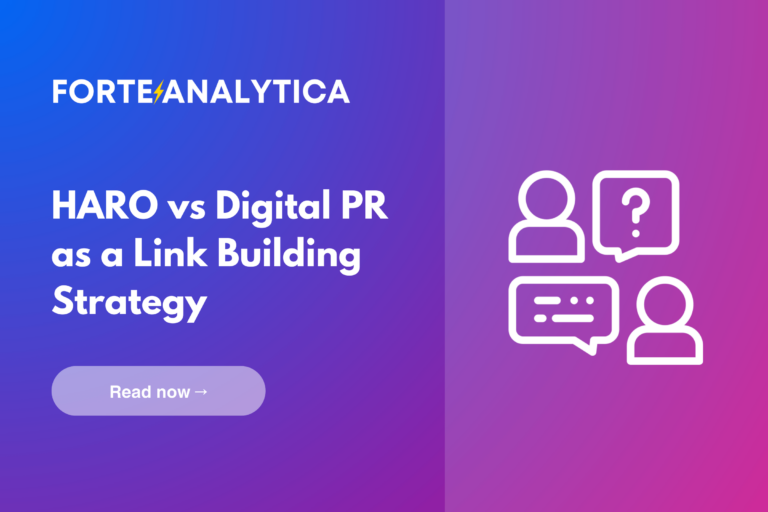Link building is still an effective strategy for increasing search engine rankings and driving organic traffic to your website.
By focusing on creating valuable content, building relationships with authoritative websites, and diversifying your backlink profile, you can harness the power of link building to boost your online presence.
We will cover everything on why link building still works in 2024 and if it’s still a viable strategy for improving search engine rankings and driving organic traffic to your website.
How Does Link Building Work?
Link building is buying or earning backlinks from other websites to your own. These hyperlinks, or backlinks, are essentially “votes of confidence” from other websites, indicating that your content is valuable and worth linking to.
Search engines like Google view backlinks as endorsements of your website’s authority and trustworthiness.
The more high-quality, relevant backlinks your website has, the higher it is likely to be trusted by Google to rank in search engine results pages (SERPs).
You can check your backlinks in Google Search Console, which is arguably just as good as Semrush or Ahrefs backlink report.
How link building has changed over the years
Over the years, the SEO industry has undergone significant changes, and link building is no exception. In the early 2000’s of SEO, link building was often approached as a quantity game, with webmasters building links from link farms and directory submissions to build as many backlinks as possible.
As search engines became more sophisticated, they started cracking down on these black-hat tactics.
The introduction of Google’s Penguin algorithm update in 2012 aimed to penalize websites engaging in manipulative link building practices, such as buying links, or participating in link schemes – ie; PBN networks or link exchanges.
Since then, the focus of link building has shifted towards quality over quantity. Search engines now prioritize natural, organic backlinks that are obtained through genuine relationships and high-quality content.
Is link building still effective?
Yes, link building is still effective – if you think otherwise, go start a YMYL (Your Money or Your Life) site and see how well you rank with zero backlinks.
While the tactics and strategies have evolved, the fundamental principle behind link building remains the same – buying high-quality backlinks that are relevant can still have a massive impact on your website’s Google search engine rankings.
It’s important to note that not all link building activities are created equal and it’s important to know when to start building links. Gone are the days of spamming forums or comment sections with links to your website. Search engines are much smarter now and can easily recognize and penalize such manipulative tactics.
To build effective backlinks in today’s SEO world, you need to focus on quality and relevance. Here are 5 of the most important things to consider:
1. Content quality
Content is still king, and it plays a crucial role in link building. By creating valuable, informative, and engaging content, you increase the likelihood of other websites naturally linking back to your content.
When your content provides value to users, it becomes link-worthy, and other websites will naturally want to share it with their audience.
2. Topic relevancy
Relevance is another important factor to consider when building backlinks. Search engines place a strong emphasis on the relevance of the linking website to your own website.
For example: if you run a fitness site, a backlink from a reputable nutrition website or ecommerce store will have more value than a backlink from a fashion blog.
3. Authority backlinks
The authority of the linking website also plays a significant role in the effectiveness of link building.
Backlinks from authoritative websites with a strong online presence and high domain authority can have a substantial impact on your website’s rankings.
Building relationships with influential websites in your industry and earning backlinks from them should be a key focus of your link building efforts.
One of the best ways you can earn high authority backlinks is deploying a reactive digital PR campaign, as you can get highly relevant backlinks on some of the world’s biggest publications.
4. Earning natural backlinks
Search engines value natural link acquisition over artificial link building campaigns.
Instead of actively reaching out to other websites and requesting backlinks, focus on creating high-quality content that naturally attracts links.
This can be achieved through guest posting, creating shareable infographics, or producing insightful industry reports.
5. Diversification
Building a diverse backlink profile is crucial to the long-term success of your link building efforts.
Search engines not only look at the quantity and quality of backlinks but also the diversity of sources.
Aim to acquire backlinks from a variety of reputable websites, such as industry publications, niche directories, and relevant blogs.
Tip: Ignore DR/DA metrics when building links.
Frequently asked questions
Does Google allow you to buy backlinks?
Buying backlinks is a violation of Google’s Webmaster Guidelines and can result in severe penalties. It is considered a black-hat SEO tactic and should be avoided at all costs. Instead, focus on creating high-quality content and building genuine relationships with other websites in your industry to earn backlinks organically.
How long does link building take to show results?
The impact of link building on your search engine rankings can vary depending on various factors, including the competitiveness of your industry and the quality of the backlinks acquired. In general, it can take several months to start seeing noticeable improvements in your rankings. Patience and a long-term approach are key when it comes to link building.
Are nofollow links worth building?
Nofollow links do not directly pass SEO value, they can still be valuable in various ways. No-follow links can drive referral traffic to your website, enhance your brand visibility, and signal to search engines that your website is being mentioned and talked about online. So, while they may not directly impact your rankings, they can still contribute to your overall SEO efforts.
Can link building harm my website?
Engaging in manipulative link building tactics, such as buying links or participating in link schemes, can harm your website’s search engine rankings. It’s crucial to adhere to Google’s Webmaster Guidelines and focus on ethical, white-hat link building practices. By building natural, high-quality backlinks, you can protect your website from potential penalties and improve your online visibility


